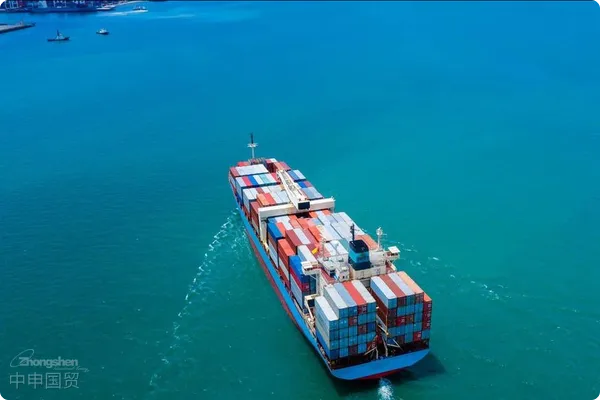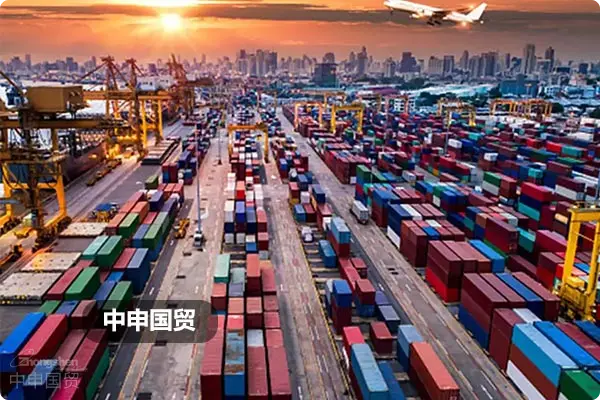- Shanghai Zhongshen International Trade Co., Ltd. - Two decades of trade agency expertise.
- Service Hotline: 139 1787 2118
I. Several Forms of Entrepot TradeEntrepot TradeII. Abnormal Manifestation Forms in Entrepot Trade
III. Policy and Compliance Risks of Entrepot Trade
On - shore Entrepot Business:On - shore entrepot business refers to the situation where goods imported from overseas are temporarily stored in a bonded supervision area and then resold to a third - party overseas. This model is relatively common in the trading of some bulk commodities, such as oil, ore, etc. Through the operation of the bonded area, enterprises can avoid paying tariffs, thus reducing costs. However, on - shore entrepot business is also affected by regulatory policies. Once the policies change, enterprises may face greater operational risks.
Warehouse Receipt Resale Business:The warehouse receipt resale business means that a domestic importing enterprise transfers the ownership of goods temporarily stored in special economic zones such as bonded zones through the form of reselling warehouse receipts. This method has certain advantages for enterprises that need to complete the transfer of ownership of goods in a short time. However, since it involves the transfer of ownership of goods, enterprises need to have certain professional capabilities in contract design, risk management, etc.
Bill of Lading Resale Business:The bill of lading resale business means that a domestic importing enterprise signs an import contract with an overseas enterprise. Without the goods entering the country or actually flowing, the goods are resold to a third - party enterprise through the way of bill of lading endorsement. This method is suitable for enterprises that need to complete the transaction during the transportation of goods. Although this method can help enterprises achieve rapid capital return, since it involves the transportation of goods, enterprises may face transportation risks and goods quality risks.
When providing entrepot trade settlement and financing services to customers, banks should effectively prevent the risks brought to banks by false transaction backgrounds or false financing demands. Specific abnormal situations can include the following:Newly established enterprises or enterprises newly entering a certain industry, the enterprises
Off - shore Entrepot Business:
(entrepot trade) volume grows rapidly in a short time; it does not match the registered capital, enterprise scale, historical transactions, and number of employees. This situation may indicate that the enterprise has excessive arbitrage behavior. In this regard, banks should conduct a detailed investigation, including in - depth analysis of the enterprises business model, profit sources, etc.
2. Newly established enterprises or those newly entering a certain industry, the enterpriseimport and export(entrep?t trade) volume grows rapidly in a short period; it does not match the registered capital, enterprise scale, historical transactions, and number of employees. This situation may indicate that the enterprise has excessive arbitrage behavior. In this regard, the bank should conduct a detailed investigation, including in - depth analysis of the enterprises business model, profit sources, etc.
The trading mode is single. After finding a mature arbitrage mode, it is frequently used, and the banks trade financing is used to develop like a snowball, especially for forward trade financing arbitrage transactions of more than 90 days by taking advantage of the price differences between domestic and foreign markets. This situation may indicate that the companys trading background is not genuine, and it is only using the banks financing services for arbitrage. In this regard, the bank needs to deeply understand the companys trading background, trading partners, and its financial situation to determine whether there are any violations of regulations.
The business focus is concentrated on one or several overseas customers, or on a specific customs port, specific products, specific regions, specific logistics routes, specific time periods, etc. This situation may imply that there is a certain fixed pattern in the companys transactions, which may be to evade supervision or conduct other improper business activities. In this regard, the bank should conduct an in - depth analysis of the customers trading mode and customer relationship to identify potential risks.
During the entrepot trade process, the same batch of goods is imported and exported multiple times, or is repeatedly re - exported within a specific economic zone. This situation may imply that the company has circular transactions, that is, the company may, without actual demand, import and export repeatedly to achieve policy preferences or other purposes. In this regard, the bank needs to conduct a detailed analysis of the customers goods flow and try to understand its true business needs as much as possible.
This business model means that after purchasing goods from overseas, the goods are not declared for entry into the domestic territory but are directly resold to a third - party overseas. For example, Chinese enterprise A purchases a batch of goods from US enterprise B, but these goods do not actually enter the Chinese territory and are directly resold to enterprise C in Australia. This model is conducive to shortening the delivery time and saving relevant taxes and fees. However, in the operation process, since most of the enterprises involved are located in different countries, it puts forward higher requirements for the enterprises cross - border business coordination ability and risk management ability.
National laws and regulations risks:For entrepot trade, the laws and regulations of various countries are very important considerations. This includes but is not limited to import and export controls, tariff policies, foreign exchange management, environmental protection regulations, etc. Enterprises must understand and comply with all relevant laws and regulations; otherwise, they may face serious legal risks.
Policy change risks:Since entrepot trade involves multiple countries and regions, the risk of policy changes is inevitable. For example, a change in a countrys tariff policy may directly affect the companys profit level and may even lead to the inability to continue the business. Therefore, enterprises must have sufficient flexibility and adaptability to cope with possible policy changes.
Compliance risks:During the process of carrying out entrepot trade, enterprises must comply with relevant compliance requirements. This includes but is not limited to anti - money laundering, anti - corruption, data protection, intellectual property protection, etc. If enterprises violate regulations in these aspects, they may face significant legal risks and economic losses.
Related Recommendations
Learn
Contact Us
Email: service@sh-zhongshen.com
Related Recommendations
Contact via WeChat

? 2025. All Rights Reserved. Shanghai ICP No. 2023007705-2  PSB Record: Shanghai No.31011502009912
PSB Record: Shanghai No.31011502009912








